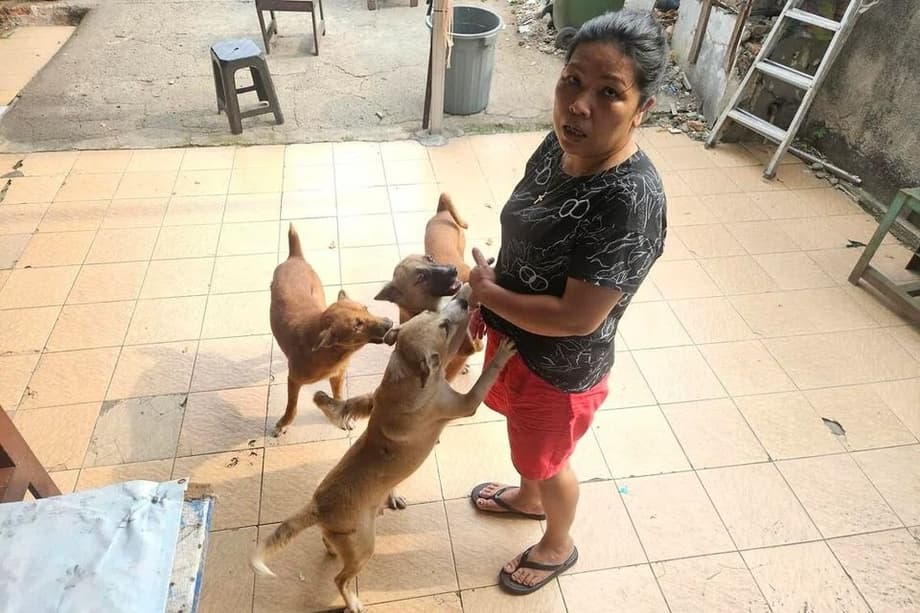Jakarta prepares sweeping ban on dog and cat meat
Jakarta is preparing to outlaw the sale and consumption of dog and cat meat across the capital, a measure city leaders say will protect public health, keep the city free of rabies, and address animal cruelty in an unregulated trade. The regulation, which the governor said should be finalized within a month, would make it illegal to sell or serve dog and cat meat at markets, street stalls, and restaurants. The plan has drawn praise from animal welfare groups and doctors, while some business owners and diners who regard the meat as part of local tradition denounce the move as unfair.
- Jakarta prepares sweeping ban on dog and cat meat
- Why now: health risks, welfare concerns, and a shrinking market
- Tradition meets policy: sellers and diners push back
- How serious is the health risk
- What the Jakarta regulation will cover and how it could be enforced
- Crackdowns and rescues are reshaping the trade
- The hidden supply chain and why it persists
- Indonesia is not alone: global trend moves away from dog meat
- What the ban could mean for Jakarta
- Highlights
For Lastri, who runs a small eatery in Jakarta, the approaching ban brings anxiety. She says her sales rose over the past year as competing stalls quietly dropped dog dishes under growing pressure, yet the regulation could end her business overnight. Lastri argues that her meat comes from wild dogs rather than stolen pets. Regulars at such eateries sometimes claim health benefits from dog soup, especially for patients recovering from dengue. Medical professionals say there is no scientific basis for those claims.
Even before the rule takes effect, the trade has thinned in Jakarta. Younger residents increasingly see dogs and cats as companions rather than food, and many eateries in the city have quietly removed these dishes. That shift sits alongside rising enforcement and public campaigns. Animal protection advocates estimate that about 8,000 to 9,000 dogs are still slaughtered for food in Jakarta each month, down from about 9,500 in 2020, with some animals transported from rabies endemic areas to meet demand.
Why now: health risks, welfare concerns, and a shrinking market
Rabies remains a major concern across Indonesia, and only 11 of the country’s 38 provinces are free of rabies. Public health experts warn that the dog meat trade undermines vaccination programs by moving unvaccinated dogs across provincial lines, mixing populations, and creating outbreaks that are difficult to track. The supply chain is informal and often operates without veterinary inspection, cold chain controls, or sanitation checks that apply to livestock and legally traded meats.
Animal welfare is also central to the push. Investigations over several years have documented cruel methods of capture, transport, and slaughter. The central government has said that dog meat is not food, and local jurisdictions have started to prohibit the trade. Jakarta’s plan would be the most consequential move yet in Indonesia’s largest city, and it comes as many restaurants phase out dog dishes under social pressure and health warnings.
Tradition meets policy: sellers and diners push back
Dog meat has deep roots in some communities, especially among the Batak people of North Sumatra, where dishes such as saksang and B1 are part of family gatherings and religious celebrations. In parts of Central Java and North Sulawesi, dog dishes are sometimes advertised with code words. Vendors in Solo have used playful references like Scooby Doo on roadside signs. Longtime customers often describe the taste as distinctive and warming. Some still believe dog soup boosts platelet counts for dengue patients, a claim doctors reject as myth.
Business owners say a ban could wipe out their livelihoods. Lastri reports that many stalls around the capital stopped serving dog meat, leaving her to fill delivery orders that now come from satellite towns. Others in cities such as Medan say they would protest any prohibition they view as targeting their culture. A few owners counter that if a ban is applied fairly and everywhere, they would accept it, pointing to the need for clear rules across the archipelago.
How serious is the health risk
Rabies is one of the deadliest viruses known, and once symptoms appear in humans, it is almost always fatal. The virus is carried in saliva and nerve tissue. People face the highest risk during capture and slaughter, when bites and cuts are common and contaminated saliva or tissue can contact broken skin or mucous membranes. Health authorities caution that meat from a rabid animal could transmit rabies. The risk is magnified when dogs are sourced from unknown origins and moved across regions without vaccination records.
Doctors also warn of foodborne hazards in informal slaughter and sale. Poor hygiene can spread bacteria such as Salmonella and E. coli, and parasites that cause severe gastrointestinal disease. The dog meat trade typically operates outside veterinary inspection and sanitation systems designed for livestock, which raises the risk of contamination from the moment animals are packed into trucks to the final stages of butchery and cooking.
What the Jakarta regulation will cover and how it could be enforced
The governor has said the regulation will bar the sale and serving of dog and cat meat across the capital. City agencies are expected to carry out inspections and issue sanctions that can include fines and closures of noncompliant businesses. Officials say the plan aligns with national food safety and animal health frameworks, and with the city’s long standing goal of preventing rabies. Jakarta has maintained free of rabies status for about two decades, and policymakers want to protect that record as Indonesia aims to eliminate rabies nationwide by 2030.
Indonesia’s laws do not classify dogs and cats as livestock, and a central government regulation established that their meat is not food. Those provisions create room for local administrations to restrict or ban the trade in their jurisdictions. Several regencies and cities, including Karanganyar, Salatiga, Sukoharjo, and the city of Tomohon on Sulawesi, have already taken action. Jakarta’s move would extend that approach to the nation’s busiest dining scene, covering markets, stalls, and restaurants where dog dishes have quietly persisted.
Crackdowns and rescues are reshaping the trade
One of Indonesia’s most notorious wet markets, Tomohon Extreme Market in North Sulawesi, ended dog and cat meat slaughter after years of campaigning and negotiations. Authorities pledged to enforce the prohibition, and animal welfare groups evacuated remaining animals to sanctuaries. The change removed a long time tourist curiosity from an area associated with extreme foods, and it demonstrated that local bans can be enacted and enforced with sustained pressure.
Police have also moved against traffickers. In Sukoharjo, Central Java, officers intercepted a truck loaded with 53 dogs. The animals were bound inside sacks, many with their mouths tied shut. Campaigners who assisted at the scene said several dogs still wore collars, suggesting they were stolen from homes. Lola Webber, a campaign director with Humane Society International and part of the Dog Meat Free Indonesia coalition, described what responders encountered.
It was extremely traumatizing, with many dogs still wearing collars, likely stolen pets.
The Sukoharjo operation followed another case in which a dog trader caught moving 78 animals was sentenced to 10 months in jail and handed a fine of 10,000 dollars. Activists cite such outcomes as a sign that authorities are increasingly willing to prosecute under existing animal health and quarantine laws. Public opinion also appears to be shifting. Surveys cited by campaigners indicate that only a small share of Indonesians eat dog meat, and that most respondents support a nationwide ban.
Law enforcement leaders have framed the issue as both a public safety matter and a moral one. Mr. Tarjono Sapto Nugroho, head of crime investigation with the Sukoharjo Police, addressed the local sentiment.
The community does not want this trade or slaughter. The trade is already illegal and strictly prohibited by Islamic law.
The hidden supply chain and why it persists
The dog meat trade in Indonesia runs on informal networks. Traders source dogs from several provinces, often moving them at night on intercity roads. Accounts collected by campaigners describe animals crammed into cages or sacks with their mouths bound, then transported long distances without food or water. The lack of traceability creates opportunities for pet theft and illegal capture from regions battling rabies. It also makes regulatory oversight and disease control difficult.
Despite pressure from authorities and social stigma, demand remains in pockets of the country. Jakarta’s estimated monthly slaughter has declined from around 9,500 in 2020 to roughly 8,000 today. Hot spots include North Sumatra, Central Sulawesi, and East Nusa Tenggara, though some local governments in those regions have begun to consider or implement bans. Cat meat is consumed in a few areas at a much smaller scale, and it is also expected to be covered by Jakarta’s prohibition.
Indonesia is not alone: global trend moves away from dog meat
Across Asia, momentum is building to end the trade. South Korea’s government and ruling party leaders have backed a plan to prohibit the consumption of dog meat, with a proposed three year grace period and support to help farmers and restaurants transition out of the business. The country has more than a thousand dog farms and hundreds of restaurants that would be affected, but polling suggests public opposition to dog meat is strong, particularly among younger people.
Several places in the region, including the Philippines, Taiwan, Singapore, Hong Kong, Thailand, and Malaysia, have already banned the dog meat trade. In China and Vietnam, traditions persist in some areas, but public debate is growing and local restrictions have increased. Globally, dog and cat meat consumption has declined as urbanization, pet ownership, and animal protection norms spread. Indonesia’s debate is shaped by the same forces, with young urban residents in cities like Jakarta viewing dogs and cats as family members rather than livestock.
Health and nutrition scholars in Indonesia note that there is no evidence that dog or cat meat offers any advantage over common livestock meats. Beef, for example, provides higher quality protein, a better micronutrient profile, and less fat than dog meat. Doctors reiterate that claims about dog soup boosting platelets in dengue patients are unsupported, and they warn that consuming dog or cat meat carries elevated risks of zoonotic disease transmission and bacterial infection.
What the ban could mean for Jakarta
If Jakarta adopts and enforces the ban citywide, restaurants and stalls still selling dog or cat meat will face a choice. Some may try to switch menus. In North Sulawesi, one slaughterhouse owner at Tomohon said he would move to pork when the prohibition took effect. Others will seek customers outside the capital, which could spur tighter checks on interprovincial transport. Business owners argue they need time and support to pivot, and city officials will likely balance enforcement with education and outreach.
For residents, the change would bring clearer rules. It would signal that dog and cat meat are off the menu in Jakarta, and it would reduce the movement of potentially infected dogs into the city. Public health campaigns on pet vaccination, sterilization, and registration may accompany enforcement to limit stray populations and theft. Activists hope that Jakarta’s example will influence other jurisdictions. The risk remains that a small underground market could persist, but a combination of inspections, prosecutions, and social pressure has already led many stalls to stop serving dog meat.
Highlights
- Jakarta plans to ban the sale and consumption of dog and cat meat, with a regulation expected within a month.
- City leaders frame the move as a public health and animal welfare measure designed to keep Jakarta free of rabies.
- Estimates suggest 8,000 to 9,000 dogs are still slaughtered monthly in the capital, down from about 9,500 in 2020.
- Only 11 of Indonesia’s 38 provinces are free of rabies, and the dog meat trade undermines vaccination and disease control.
- Health experts say there is no evidence dog meat boosts platelet counts in dengue patients.
- Restaurants and stalls have already reduced dog dishes amid social pressure and inspections, with younger diners viewing dogs as pets.
- Police raids have intercepted dog shipments in Central Java, and courts have imposed jail terms and fines on traffickers.
- Tomohon in North Sulawesi ended dog and cat meat slaughter at its market after campaigns and negotiations.
- Several Asian jurisdictions, including the Philippines, Taiwan, Singapore, Hong Kong, Thailand, and Malaysia, ban the dog meat trade.
- Jakarta’s rule would cover markets, stalls, and restaurants, with enforcement through inspections and potential business closures.












